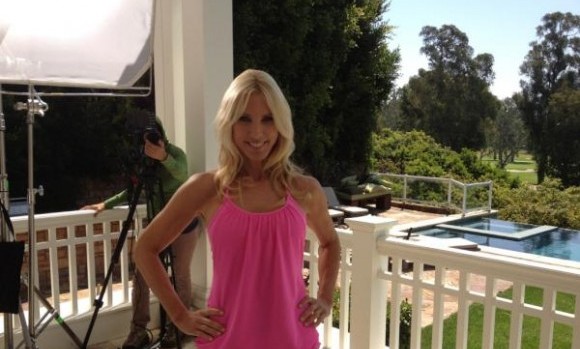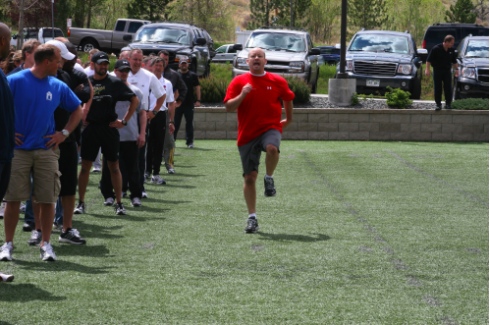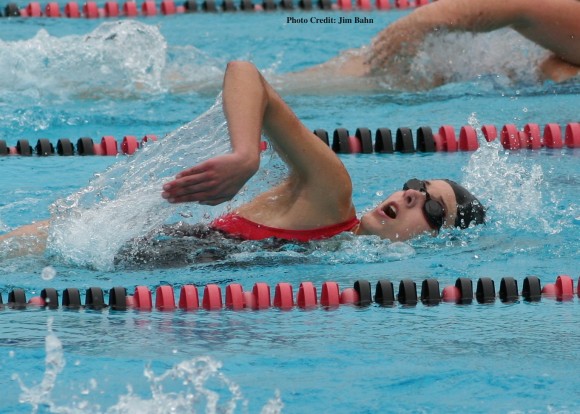By: Teena Murray
 Let me start by introducing myself. I like to say that I’m just a small town girl who’s always had pretty big dreams, especially where sport is concerned. I grew up in a tiny Canadian town of about 1,800 hockey fans. It’s a one-stoplight town. A place with more cows than people, mostly mom-and-pop shops on Main Street, and everyone knows your name (which was both bad and good growing up). Like many small towns, Shawville (Quebec) is a place that’s hard to leave, and a place where dreams can be hard to realize. Fortunately, I grew up in a hockey family, with two uncles in the NHL, one a player and one a coach, so as a young girl I believed that ANYTHING was possible.
Let me start by introducing myself. I like to say that I’m just a small town girl who’s always had pretty big dreams, especially where sport is concerned. I grew up in a tiny Canadian town of about 1,800 hockey fans. It’s a one-stoplight town. A place with more cows than people, mostly mom-and-pop shops on Main Street, and everyone knows your name (which was both bad and good growing up). Like many small towns, Shawville (Quebec) is a place that’s hard to leave, and a place where dreams can be hard to realize. Fortunately, I grew up in a hockey family, with two uncles in the NHL, one a player and one a coach, so as a young girl I believed that ANYTHING was possible.
Specifically, I grew up convinced that I COULD and WOULD be the first woman in the NHL (Plan A), or NBA (Plan B), and thus did everything I knew (which wasn’t much at the time) to become the best athlete I could. I ran early, lifted late, shot pucks, tennis balls and basketballs in the driveway until it was either too dark to see, or my hands were too frozen to continue.
Then, during my college years, while playing basketball and studying kinesiology (at Wilfrid Laurier University) I got serious about lifting weights. We didn’t have a strength coach, so I did what most people did at the time. I relied on Muscle and Fitness Magazine. I was in the weight room at least once a day, experimenting with anything and everything that sounded like it could make me bigger, faster and/or stronger. Back home in the summer I built a weight room in my parents’ basement, and invited some of the local hockey guys to work out with me- excited to teach them everything I had learned. Then, one summer I decided to grow my operation (and appease my mom who wanted us out of the basement). I rented space at the local rink, using two adjacent dressing rooms for my weight room, and the ice surface (which didn’t have ice in the summer) for speed and conditioning work. And I convinced many of the top local players to come and train with me. ‘Future Stars’ Off-Ice Training Camp was born. It was a hit. From that point on I was hooked!
Sixteen years later I look back and am amazed at the good fortune I’ve had in this young profession. In addition to memorable college stints at Cornell, University of Connecticut and (now) Louisville, I’ve worked with NHL (Florida Panthers & Anaheim Ducks) and AHL (Hartford Wolfpack) hockey teams, the U.S. Women’s National and Olympic hockey teams (silver medal, Vancouver 2010), and the International Ice Hockey Federation. Through these experiences I’ve been blessed to train some of the best athletes in the sports of men’s and women’s ice hockey, soccer, basketball, softball, field hockey and lacrosse, and learn from some of the finest coaches in the industry.
Today, developing ‘future stars’ is still my greatest passion. In my present role I have the privilege of leading the Sports Performance program at the University of Louisville- where my staff and I work with 21 teams and over 500 athletes. Our program slogan is “Building Athletes, Preparing Champions,” and everything we do, and the way we do it, is based on those words. More than ever, we know that bigger, faster and stronger alone does not win championships, so we are committed to creating a culture and a system of training that develops the entire anatomy of a champion, body, mind and spirit. That means we go beyond the physical, deploying everything from mental conditioning strategies, leadership development strategies, supplementation and performance nutrition strategies, vision training, yoga, meditation and anything else, traditional or non-traditional, that can help our athletes and teams reach their full potential. We raise the bar, and then we raise it again and again…. Because ANYTHING is possible… if you have a dream and the determination to pursue it!
See:
ATLX Expert: Teena Murray
ATLX Partner: Collegiate Strength and Conditioning Association
University of Louisville Athletics
Want more ATLX exclusives? Follow us on Twitter and like us on Facebook.
 ATLX The only sports entertainment television and digital media network fully devoted to everyday athletes, athletic lifestyle and athletic culture.
ATLX The only sports entertainment television and digital media network fully devoted to everyday athletes, athletic lifestyle and athletic culture.




